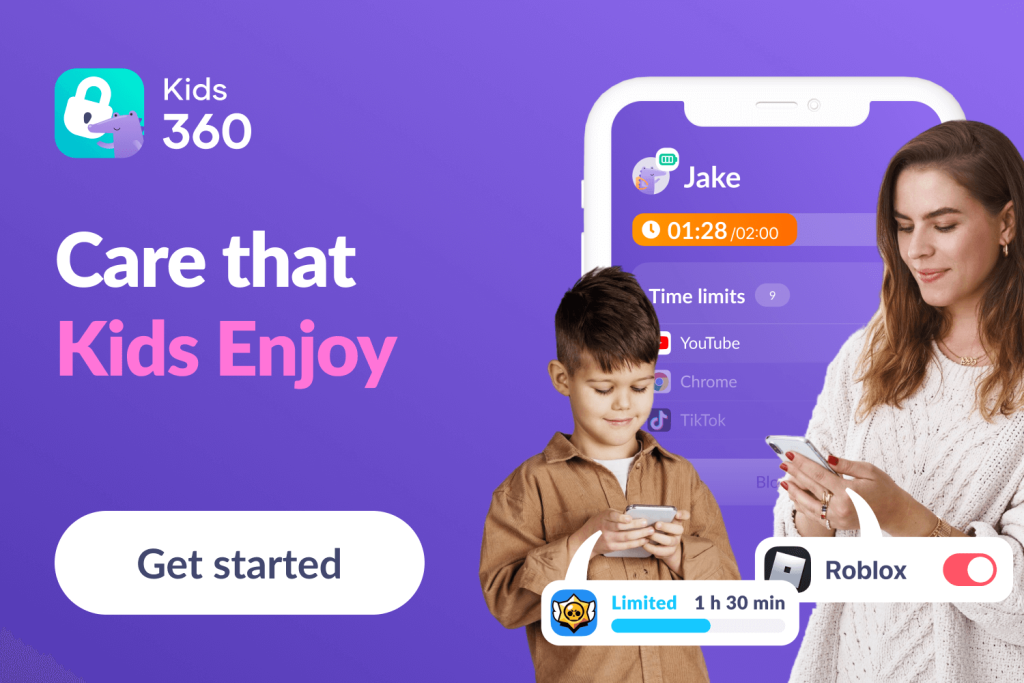Meaning of “Bet” in Teen Slang

What does bet mean in slang, and why is your kid using it so often? Slang evolves quickly, and today’s teens are fluent in phrases that can leave parents scratching their heads.
One term you’ve likely heard is “bet.” While it may sound simple, in modern teen speak, it goes far beyond its dictionary definition—usually signaling agreement, excitement, or a casual “OK.”
Understanding what “bet” means in slang can help parents stay connected, avoid misunderstandings, and bridge the ever-growing language gap between generations.
Contents:
- What Does “Bet” Mean?
- Where Did “Bet” Originate From?
- Alternatives
- Examples of Use and How to Respond
- How To Talk With Your Kid About Slang—and Keep Them Safe
- FAQs
What Does “Bet” Mean?

Brocreative/Shutterstock.com
In the world of texting, “bet” is often used to stand for a general agreement with someone or to confirm that something will be done. For example, if your child texts, “Can you pick me up at 5?” and the response is “Bet,” it simply means “Okay” or “Understood.”
On social media platforms like Twitter, Snapchat, and Instagram, the definition of “bet” is used similarly to how it’s used in texting these days. It’s a quick way to express agreement or approval. If someone posts something like, “Just got tickets to the game!” a reply of “Bet!” shows excitement and affirmation.
Where Did “Bet” Originate From?
“Bet” is originally derived from African American Vernacular English (AAVE). The term has evolved over many years and has become a staple in modern slang.
Although it might seem new in entertainment, its roots go back quite a bit. Originally, it might have had connections to actual betting or wagering, indicating someone acknowledging certain stakes or agreements.
Alternatives
There are several words and phrases that can be used as an alternative expression to “bet,” including:
- Okay
- Alright
- Sure
- Understood
- No problem
Bet is just a slang expression for all of the above. If you are in a casual conversation with a Gen Z member, it might help you learn popular slang.
Here is a slang phrase comparison table to help you understand commonly used terms better:
| Word | Meaning | When to Use | Example in Text | Equivalent in Standard English |
| Bet | Agreement, “OK,” “Got it,” “Sounds good” | In response to a proposal or statement | — Wanna go at 7?
— Bet! |
“Alright,” “Sure,” “Deal” |
| No cap | “No lie,” “For real,” “I’m being honest” | To emphasize truth or sincerity | This movie is amazing, no cap | “Seriously,” “No joke,” “Truthfully” |
| Fr | Short for for real — “Seriously,” “Really” | To confirm sincerity or express emotions | I’m tired fr | “Honestly,” “Really” |
Examples of Use and How to Respond

fizkes/Shutterstock.com
If your child says “bet” to you, a simple “okay” or “alright” will suffice. Understanding this term can help bridge the communication gap and make conversations smoother.
Here are some examples of “bet” in conversation.
Example 1:
- Teen: “I’ll be home by 10.”
- Parent: “Bet. See you then!”
Example 2:
- Teen: “Want to play video games later?”
- Friend: “Bet! I’m in.”
Example 3:
- Parent: “Did you do all the homework for school?”
- Teen: “Bet! I finished it last night.”
As you can see, “bet” is quite a versatile term. It’s also used more and more, which is not surprising because slang popularity is at a high level nowadays. It’s getting harder for parents to keep up with the current slang sense. However, it’s vital to learn new phrases since they’ll help you understand your teenager better.
How To Talk With Your Kid About Slang—and Keep Them Safe
It’s important to stay engaged with your child’s world, including their use of slang. Here are some tips for talking about slang and keeping your child safe online:
- Ask Questions: Show interest by asking what certain words mean.
- Stay Updated: Regularly update yourself on new slang terms.
- Open Dialogue: Encourage open conversations about language and its impact.
- Use Monitoring Tools: apps like Kids360 can help you keep an eye on your child’s online interactions.
Navigating the World of Slang with Kids360
Kids360 is a comprehensive parental control app that allows you to track your child’s online behavior, block inappropriate content, and set screen time limits. With features like real-time location tracking, you can ensure your child’s safety both online and offline.
Don’t wait until it’s too late. Take proactive steps to protect your child online and start the conversation about slang today—download the Kids360 app now!
Understanding slang like “bet” can make you feel more connected to your child and can facilitate better communication.
While it might seem challenging at first, a little effort can go a long way in bridging the generational language gap.
FAQs

Olga Salt/Shutterstock.com
What does “bet” mean in slang?
“Bet” is a versatile slang interjection used to express agreement, approval, or readiness. Common among teens and in online culture, it can mean “okay,” “for sure,” or “got it.” Depending on context, it may also signal acceptance of a challenge (“Challenge accepted”) or convey sarcastic disbelief (“You’ve got to be kidding me”). Its tone is typically casual and confident.
What does “bet” mean in texting?
In texting, “bet” is used to agree or confirm something (not necessarily anything having to do with money). It’s like saying “okay” or “understood.”
What does “you bet” mean in texting?
In texting, “you bet” is a casual way of saying “you’re welcome” or “definitely.” It’s often used to confirm something in a friendly tone. For example:
- “Thanks for your help!”
- “You bet!” (meaning: “No problem!” or “Of course!”)
Is “bet” slang for ok?
Yes, “bet” is often used as slang for “okay” or “alright.”
Why are kids saying “bet”?
Kids use “bet” to quickly express agreement or approval. It’s a trendy term that has become popular in recent years.
Why does Gen Z say “bet”?
It’s a new English slang word that describes agreeing with the other side. They are accepting your proposition or confirming what you said, so this is a positive term.
How do you reply when someone says “bet”?
You could also use the slang “bet” to confirm the deal. Alternatively, it’s perfectly fine to say “alright”, “sounds good”, or “I’ll see you there.” It depends on the concept, but the person is agreeing with you when using this term, so you want to act accordingly.
What does “bet” mean in the hood?
In the hood, “bet” maintains the same meaning of agreement, often used as a form of affirmation or approval. Its roots in African American Vernacular English (AAVE) mean it has long been part of slang in these communities.
What does the BET Awards stand for?
The BET Awards stand for the Black Entertainment Television Awards. It’s an annual ceremony established in 2001 by the BET network to celebrate African Americans and other minorities in music, acting, sports, and other areas of entertainment.
Cover image: DavideAngelini/Shutterstock.com
Проверьте электронный ящик




















